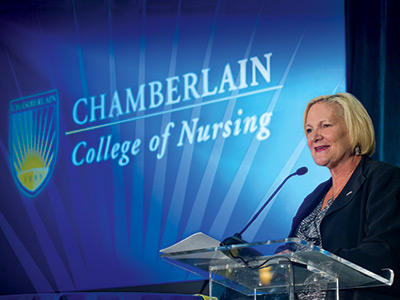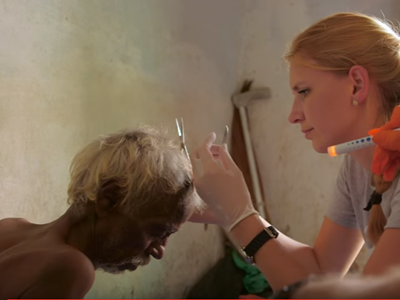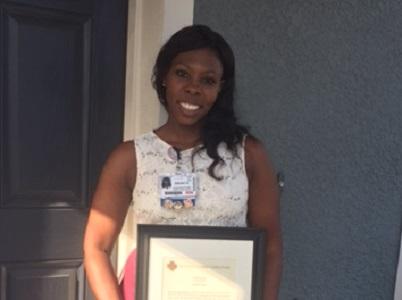Featured
Tags
Share
- Home / Blog / Faculty and Staff / Care for Yourself – Advance Your Education
Care for Yourself – Advance Your Education

As nurses, we touch others’ lives in ways that few other professions do. We are called upon to demonstrate passion and resilience, confidence and critical thinking, while treating the whole individual in true person-centered care.
How can we do all that if our own wellness needs are not being met?
Through the practice of self-care, nurses can keep themselves healthy, both mentally and physically. When we “fill our own cup,” we are able to bring our best selves, and an emotional reserve, to the job every day.
For many, self-care means the obvious – getting enough sleep, eating well and finding healthy ways to deal with stress.
But caring for our whole selves also involves addressing our intellectual needs, personal goals and desire to fulfill our potential as a nurse and as a human being.
Viewed in that light, a very real act of care for yourself is continuing your education – both formally and informally.
I know that this sounds counter-intuitive. You’re probably thinking that additional education takes time and energy that might already be in short supply.
I’ll be the first to admit that combining work, family and education is hard, but I also know the extent to which it’s worth it. Advancing your education is a form of investing in yourself – and like any good investment, it pays all sorts of dividends.
The reasons people seek an advanced degree are varied and personal, as are the benefits derived. One person may want to improve his or her marketability for promotion or a job change. Another may seek to fulfill a lifelong dream.
In addition to giving you the credentials to advance your career, lifelong learning also leads to enhanced knowledge and skills, broader perspective, greater confidence and a renewed sense of your own ability to make a difference.
This is something I’ve seen in my colleagues and heard time and time again from students. It’s also something I’ve experienced in my own life and career.
When I decided to pursue a bachelor’s degree after graduating with a diploma in nursing, I knew that my job opportunities would be greater with a bachelor’s degree, but I was unaware of how much my perspective about nursing and healthcare would broaden as a result of a baccalaureate education.
I was introduced to nursing theorists for the first time. I saw my own views about the profession – and my own career possibilities as a nurse – expand.
Right then and there, having never considered an advanced degree, I set a goal to earn a doctorate. After taking a 30 year hiatus from doctoral studies, I finished my doctorate at the age of 64. I did it because it had been a lifelong goal, but also because the courses, papers and dissertation applied directly to what I do every day.
Through my advanced education, I learned a lot that has made me more effective at my job. At the same time, I grew in my confidence and interest in scholarship and research, and expanded my career opportunities for consulting and other roles outside of my job.
I am a believer in the power of education to improve lives. Nowhere is that more true than in our profession. By improving our own lives, we also improve the lives of our patients.
Nurses who are healthy and rested can provide extraordinary care to their patients and their colleagues. The same goes for nurses who are intellectually satisfied, with enhanced problem-solving abilities, a renewed sense of dedication and the credentials to go where they want to go.
Study after study has shown that advanced education among nurses improves patient outcomes. Reflecting this reality, the Institute of Medicine (IOM), in their 2011 report, “The Future of Nursing: Leading Change, Advancing Health,” implored nurses to achieve higher levels of education, and then practice to the full extent of their training.
With advanced education, you can be a mentor and leader to help other nurses manage workplace stressors. You can assume leadership positions in policy and healthcare reform, or educate the nurses of tomorrow in a way that instills in them the importance of care across all facets of the profession, including self-care.
Jean Watson, PhD, RN, AHN-BC, FAAN, renowned nursing philosopher, asserts that the intention of caring is not enough. It is through the demonstration of concrete acts that the experience of care is achieved.
I challenge you to commit to a concrete act of care for yourself. Decide that it’s time to earn that BSN, or advance your education with that MSN or doctoral degree. Complement the degree you already have with a graduate certificate.
If this is not the right time for you to enroll in a formal program, you can still learn something new today and every day. Take CE courses. Attend seminars. Read journals. Learn about another culture that’s represented among your patient population.
Expand your knowledge, and you can see it pay off in your sense of satisfaction and your ability to provide the highest level of care and service to others – and in your contributions to our wonderful profession.
By Chamberlain University
More from Faculty and Staff
Request More Information
To receive the Chamberlain University Program Guide, including associated career paths, please select a program of study.







